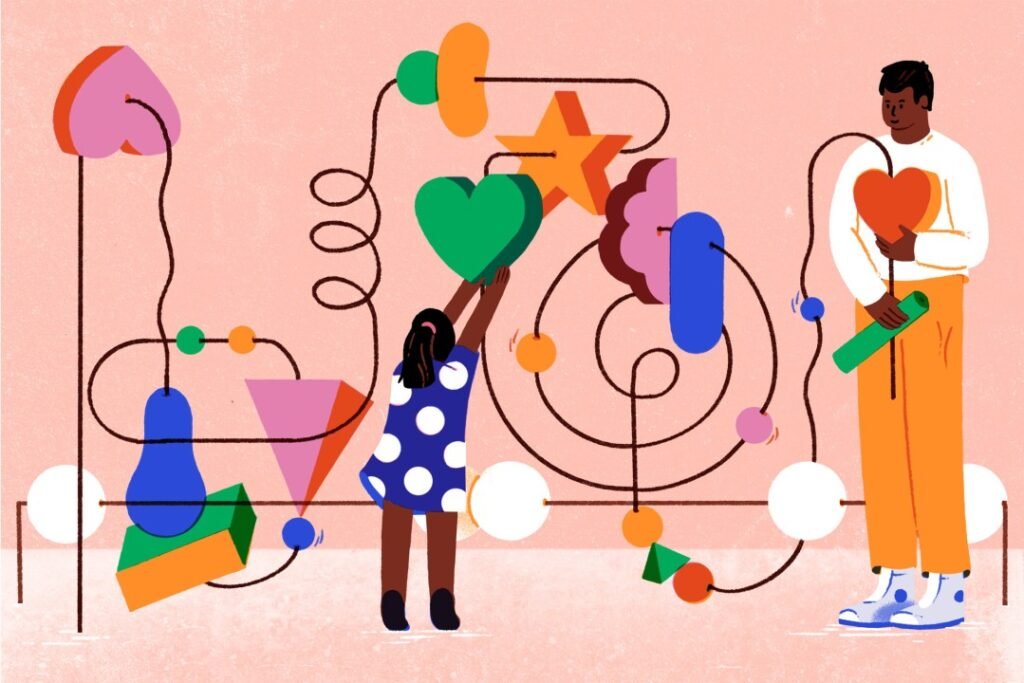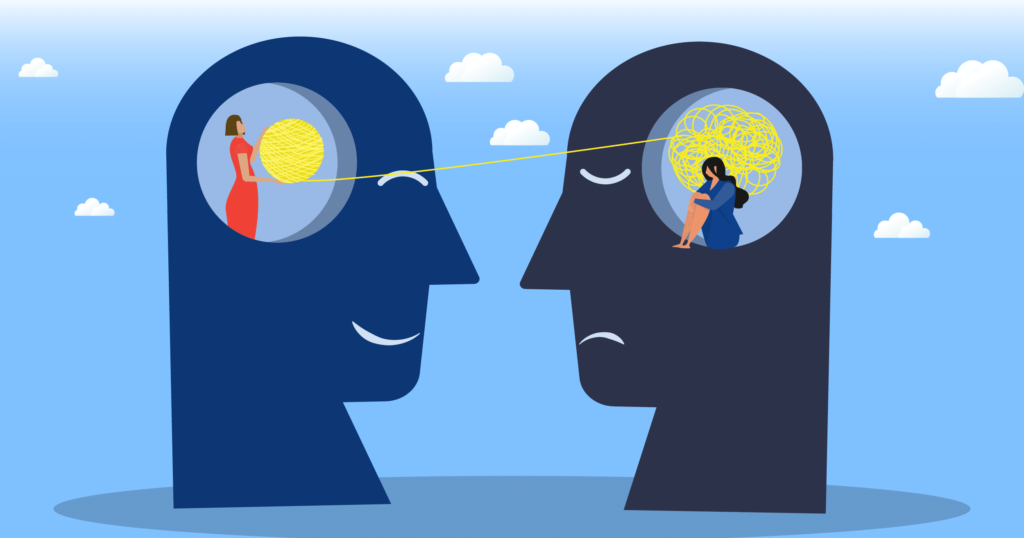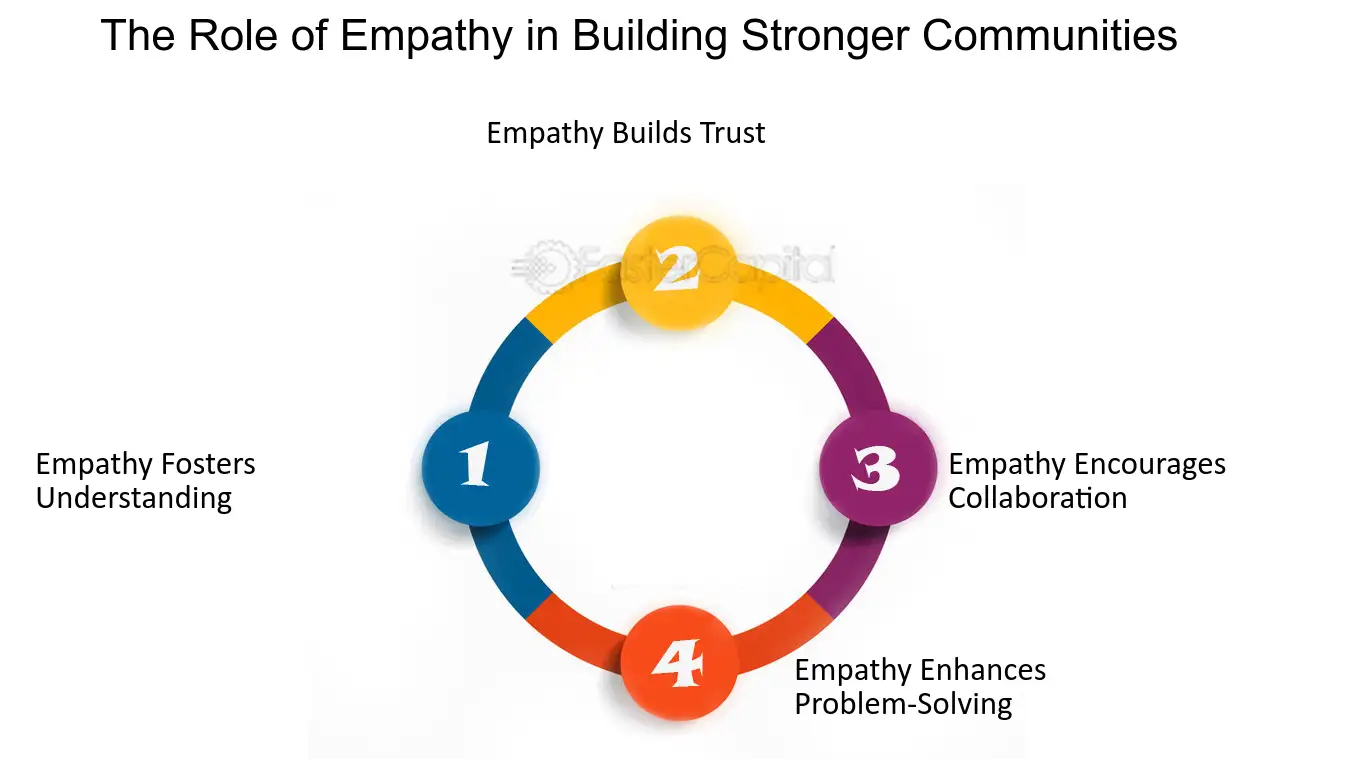The Role of Empathy in Building Strong Communities
Empathy, the ability to understand and share the feelings of others, is fundamental in building strong, cohesive communities. It fosters connection, understanding, and mutual support, which are essential for community resilience and cooperation.
- Fostering Connection: Empathy helps individuals connect on a deeper level, beyond superficial interactions. When community members practice empathy, they are more likely to listen actively, understand diverse perspectives, and appreciate shared experiences. This creates a sense of belonging and strengthens communal bonds.
- Promoting Inclusivity and Diversity: Empathy encourages openness to diverse experiences and backgrounds, promoting inclusivity. It allows individuals to appreciate different cultural, social, and personal narratives, which is crucial for a diverse community. When people feel understood and accepted, they are more likely to engage and contribute positively to the community.
- Enhancing Conflict Resolution: In any community, conflicts are inevitable. Empathy plays a key role in conflict resolution by enabling individuals to see issues from multiple viewpoints. It encourages dialogue, reduces misunderstandings, and fosters a collaborative approach to problem-solving. Empathetic communication can de-escalate tensions and lead to more effective and lasting solutions.
- Building Trust and Cooperation: Trust is the foundation of any strong community, and empathy is essential for building trust. When community members feel that others genuinely care and understand them, trust is established. This trust promotes cooperation and collective action, which are vital for achieving common goals and addressing communal challenges.
- Supporting Emotional Well-being: Empathy also contributes to the emotional well-being of community members. A community that practices empathy is more likely to provide support and comfort to those facing difficulties. This emotional support network is crucial for mental health and resilience, especially in times of crisis or adversity.
- Encouraging Civic Engagement: Empathetic communities are more likely to engage in civic activities. When individuals feel connected and understood, they are more motivated to participate in community affairs, volunteer, and support communal initiatives. This active participation is essential for a vibrant, dynamic community.
In summary, empathy is a powerful tool in building strong, resilient communities. By fostering connection, promoting inclusivity, enhancing conflict resolution, building trust, supporting emotional well-being, and encouraging civic engagement, empathy lays the foundation for a thriving community.


It looks like you’re asking how empathy specifically contributes to building strong communities. Here’s a more focused explanation on how empathy plays a crucial role:
- Active Listening and Understanding: Empathy involves actively listening to others’ experiences and emotions without judgment. This active listening allows community members to feel heard and understood, fostering a supportive environment. When people feel genuinely listened to, they are more likely to engage in meaningful dialogue and collaboration.
- Encouraging Open Communication: Empathetic behavior promotes open and honest communication. When people know that their feelings and perspectives are valued, they are more inclined to share openly. This transparency strengthens community ties and helps in addressing issues constructively.
- Modeling Compassionate Behavior: When community leaders and members display empathy, it sets a positive example for others to follow. This behavior encourages a culture of kindness and support, where helping each other becomes a shared value. Over time, this builds a more cohesive and united community.
- Creating Safe Spaces: Empathy helps in creating safe, inclusive spaces where everyone feels comfortable expressing themselves. These safe spaces are essential for building trust and understanding within the community. When individuals feel safe and respected, they are more likely to participate actively and contribute to communal growth.
- Facilitating Collaborative Problem-Solving: Empathetic communities are better at solving problems collaboratively. Understanding and considering different perspectives lead to more innovative and inclusive solutions. This collective approach to problem-solving reinforces community bonds and builds a sense of shared purpose.
- Strengthening Social Bonds: Through empathy, people form stronger social bonds. It encourages individuals to look out for each other, offer support in times of need, and celebrate successes together. These strong social bonds are the foundation of a resilient and thriving community.
By incorporating empathy into daily interactions, communities can create a more supportive, understanding, and collaborative environment that benefits everyone involved.



